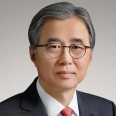Recently, North Korean leader Chairman Kim Jong Un said in a statement that he would occupy and subjugate the Republic of Korea to make it a part of North Korea. He defined inter-Korean relations as “two belligerent states in the midst of war,” “two states hostile to each other,” and declared the South as the “invariable principal enemy.”
The Kim family has pursued nuclear armament for the past 30 years while insisting on “peaceful unification.” The false pretense has now been exposed. How should we understand and respond to this North Korea?
The Kim family needs an external threat to maintain and justify one-man rule, and it will not only perceive the United States and South Korea but also the North Korean people as a threat to its survival. From Chairman Kim Jong Un’s perspective, the very existence of a free and prosperous Republic of Korea poses an existential threat to the Kim regime.
To escape from the unstable security environment, we must recognize the security reality that we are facing. Are we properly understanding and responding to North Korea? It has already been more than 30 years since 50 million South Korean citizens became hostages to North Korea, and it is worrisome because it looks like we are entrapped by the Korean version of Stockholm syndrome. Stockholm syndrome is a phenomenon in which initially fearful hostages gradually become attached to and sympathize with their captors who show friendly gestures.
When South Korean special envoys visited Pyongyang in 2018, Kim Jong Un told them that he would not use nuclear weapons, let alone conventional weapons, toward the South. If we were relieved by this, we were suffering from Stockholm syndrome. Hoping that peace will someday be achieved by accommodating North Korea through a policy of appeasement is the “Korean version of Stockholm syndrome.” It implies that we are relying on the goodwill of the captor, North Korea, rather than striving to escape from the hostage situation. A few years ago, there was an attempt to remove the word “liberal” from the “liberal democracy” stipulated in the South Korean Constitution, and more recently, there have been claims that “a bad peace is better than war,” which is essentially aimed at pleasing North Korea and destroying our spirit.
After the end of the Cold War, when American and Soviet citizens were asked how they perceived each other during the Cold War era, Americans described their view of the Soviet Union as ‘fear and contempt,’ while Soviets expressed that they saw the United States with ‘fear and respect.’ A shared element in the perceptions of citizens from both nations was ‘fear,’ a factor deemed crucial in upholding peace. This emphasizes the essential nature of a “balance of terror,” revealing that, at the very least, instilling a sense of fear in the adversary is imperative for the preservation of peace. In the exchange of 27 letters between Kim Jong Un and President Trump, Kim stated in one letter that “the South Korean military is no match against my military.” This suggests a complete absence of fear towards South Korea.
From Kim Il Sung to Kim Jong Un, the Korean Peninsula has been divided for 80 years. The most tragic incident in the 80-year history of division is the Korean War. In this war, 140,000 South Korean soldiers, 1 million South Korean civilians, and 34,000 U.S. soldiers lost their lives. After the Korean War, there were terrorist attacks like the 1968 Blue House raid by 31 North Korean armed guerrillas including Kim Shin-jo as well as the 1983 Rangoon bombing, which resulted in the deaths of 17 high-ranking officials, including Deputy Prime Minister Suh Suk Joon, Chief Presidential Secretary Hahm Pyong-choon, Foreign Minister Lee Bum Suk, and Chief Economic Advisor Kim Jae-Ik among others.
How should we perceive a North Korea that acts like this? Sovereignty, territory, and citizenry are fundamental elements constituting a nation state, but does the North Korean regime respect and treat its citizens properly? North Korean citizens live in servitude under dictatorship. If free elections were held in North Korea, would it be possible for Kim Jong Un to be elected? Considering the above, North Korea is less of a country and more of an illegal armed group and terrorist organization.
In 1991, our aspiration for peaceful coexistence through the simultaneous entry of South and North Korea into the United Nations was, in retrospect, a form of ‘wishful thinking’ that overlooked the true nature of North Korea. We must now move away from irresponsible thinking. We must become a country that North Korea fears. For that, we must equip ourselves with the overwhelming capability and determination. If the development of our own nuclear weapons is too difficult, it may be crucial to relocate at least several dozen of the approximately 150 tactical nuclear weapons that the United States withdrew from South Korea in 1991. Only then can peace be ensured.
In 2024, North Korea continues its provocative actions, such as testing new cruise missiles. Through this, North Korea has proclaimed its steadfast refusal to abandon ‘tactical nuclear’ capabilities that directly threaten us. As North Korea’s nuclear threat advances, it becomes essential for us to strengthen corresponding extended deterrence measures. The re-deployment of U.S. tactical nuclear weapons is not just a matter for consideration, it is an imperative and practical step that must be undertaken.
* The view expressed herein was published on February 13 in The Chosun Ilbo and does not necessarily reflect the views of The Asan Institute for Policy Studies

 Facebook
Facebook Twitter
Twitter